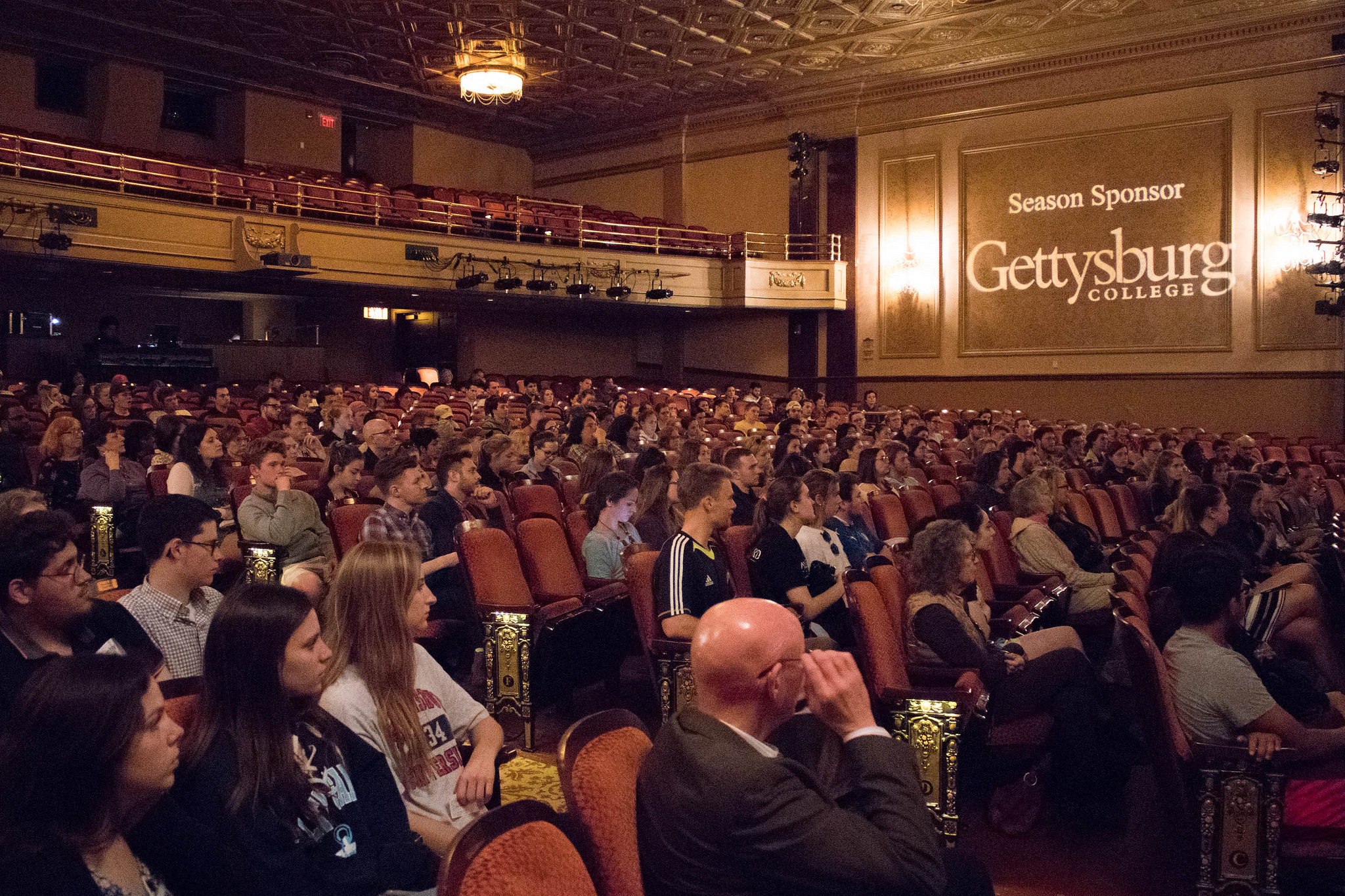Gettysburg Cycle on Ice in Year Two

A sizable crowd of students attended Bryant Terry’s speech on food justice, which was part of the “Year of Food”
Photo courtesy of Gettysburg College
By Brendan Salyards, Staff Writer
After year one of the Gettysburg Cycle gave the campus a hefty helping of food, year two, which is to focus on health, appears to be on life-support.
The Gettysburg Cycle, which aims to engage broad policy themes on a local, national, and global level, had a strong first act last year with a wide-ranging program that included a constant stream of well-promoted events, First-Year Seminars designed around the topic of food, a first annual International Food Festival, and a first-year common reading program partially connected to the topic of food. The college hosted a number of events during the “World Hunger Week,” and a lecture series that culminated with a presentation by renowned food activist Bryant Terry.
It seemed likely that this year’s “Year of Health” would solidify the Gettysburg Cycle’s place as part of the calendar of events on campus. Yet, a number of factors have combined to make the “Year of Health” a less visible program than its predecessor. Perhaps the most obvious reason is that the program’s champion, Dr. Caroline Hartzell, Professor of Political Science, is on sabbatical for the year and therefore less able to tend to her brainchild. She advocated strongly in the months leading up to the start of the 2016-2017 academic year for faculty to include elements of the “Year of Food” in their classes and she lobbied the Office of Residential and First-Year Programs to make “Year of Food” events part of the Charting Your Course (CYC) extended orientation.
Hartzell’s position as director of the director of the Center of the Study of Global Issues, also allowed her to easily access funding for the “Year of Food” and a grant through the Hanson Foundation allowed the College to bring Bryant Terry to campus without paying for his travel or speaking fees. Her absence leaves a void.
More important to the condition of the “Year of Health,” though, is the lack of support from faculty and students alike. The success of the “Year of Food” was built on the work of a small group of people led by Hartzell, but she intended for the program to become a more “all encompassing, organic process.” She envisioned student groups and clubs, as well as faculty members, taking initiative to contribute to the Gettysburg Cycle program. Last April, she told The Gettysburgian, “Students often say they want other things at this college. So why don’t they be a part of building it?”
This lack of broad campus support has reduced the profile of the Gettysburg Cycle Program such that speakers who were scheduled to come to campus as part of the lecture series have had their events cancelled. Hartzell commented that starting new programs can difficult and that the program was meant to evolve based on the desires of the campus community.
Jack Lashendock, student intern for the Gettysburg Cycle, suggested that the campus may not have seen the last of the cycle, but it will need broader support for a potential revival.
“The idea remains shelved for the time being,” he said. “Our hope is to get more support from the administration and be able to host more events that will engage students … I look forward to the potential of next year.”
Hartzell agreed.
“Although it has a lower profile than did last year’s Year of Food, there are a number of courses and activities tied to this year’s Year of Health theme,” she said. “It would be wonderful if there were groups and individuals on campus interested in taking a lead on this year’s theme (as well as other years’ themes), helping to involve the campus and community in learning and action around issues of global, national, and local importance.”
Next year was slated to be the “Year of Conflict,” a fitting topic for Gettysburg locally and an ever present topic globally. It is unclear if there will be sufficient support on campus to revive the program, an ambivalence that seems to extend to students and faculty, which may portend the Gettysburg Cycle’s quiet end. For now, it is clear the Year of Health could use a shot of adrenaline.
